#socially adapted
Explore tagged Tumblr posts
Text

old boy but /aff
#i was NOT neglecting social media and art i was actually just marinating my holmes thoughts#(lie)#as always i missed drawing the victorians#my art#no @ bc i forgot#so just please don’t use or steal lol#wip#sketch#art#fanart#fanartist#sherlock holmes#john watson#sherlock#johnlock#watsholmes#victorian husbands#sherlock holmes x john watson#sherlock holmes/john watson#acd holmes#granada holmes#not strictly based on any adaptation#but loosely influenced by granada/paget/cushing ^^
2K notes
·
View notes
Text
Prompt 47
Hear me out. Amity Park gets shifted in universes slightly- maybe it’s from Pariah, maybe it was a wish, maybe they did so on purpose to escape something- and they end up in the DC-verse. The thing is, thanks to the media blackout and the shields, no one in the new universe notices. The Amityville Paekers know about outside, can go on the internet and leave whenever they want, but they’ve all become more than a little liminal. More than a little off. Movements too graceful, eyes too sharp, ears too pointed and teeth more akin to predatory fangs. Skin with a soft glow, hair moving as though underwater or being tussled by the wind- bodies seemingly unaging after a certain point. They’re so ecto-contaminated that they’re unsure they can even be counted as human anymore, and it wasn’t like the city wasn’t already practically self sufficient. Add in a portal or two through the Infinite Realms to get supplies to start a few fields or some fish farms and well, they’re pretty good. Sure it’s resulted in them using a mixture of modern and older money and having several extinct plants and animals running around but that’s fine. There’s magic in this world! Actual magic, that they can learn! And use? Oh this makes rebuilding after a sparring incident go so much faster!
This results in the hero who stumbles across this place to believe they’ve stumbled across some sort of city of fae or elves.
#Vlad gets a redemption arc through being properly socialized#dcxdp#dpxdc#prompts#fae amity au#honestly might have been the outlaws or some speedsters who stumbled across the city#Let's be real Ellie goes out and ends up stealing away clones sometimes too#You can tell who is more liminal by how animated their hair is or if it has white in it#No longer is white hair a sign of age but now ecto-contamination#Usually activated upon death but most end up like revived instantly#the shields made it where the ecto from the portal couldn't leave so it flooded the inside#resulting in everyone getting blasted by ecto 24/7 for several years until they adapted & started producing it on their own
2K notes
·
View notes
Text
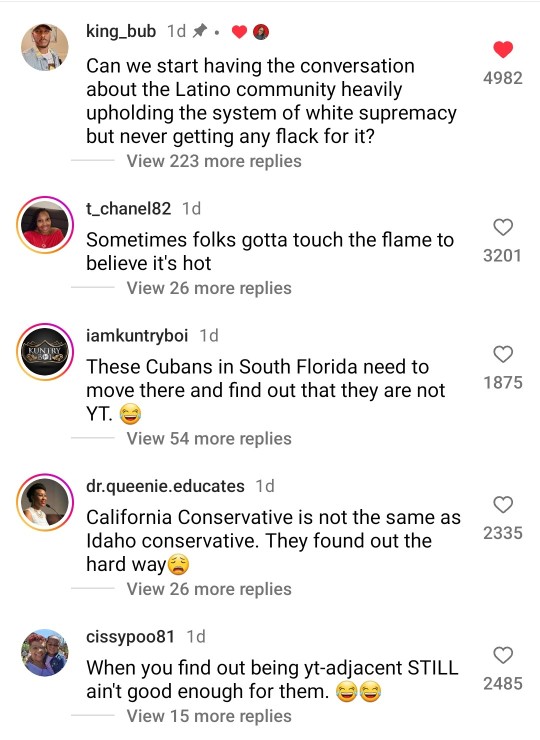

nah nah nah. y'all wanted to be white so bad, stay there with them and EAT THAT RACISM smfh
#california to idaho move#conservative family#difficulties fitting in#judgmental attitudes#gossip#tiktok announcement#return to california#political differences#moving experiences#conservative state challenges#social dynamics#melvin galang#coree ray#blue state return#gem state#conservative politics#family relocation#community acceptance#social judgment#new environment adaptation#idaho move regrets#conservative to liberal shift#fitting in challenges#family relocation issues#conservative community judgment#gossip in small towns#social adaptation struggles#moving back to california#conservative state culture shock#community politics
531 notes
·
View notes
Text


#pjo adaptation#pjo#percy jackson#if this kid browses pjo social media i hope to god he doesn’t some of the nonsense y’all r posting
2K notes
·
View notes
Text


[此糸縫]
#llll_NNMN#art#b&w#sketch#character#they deleted their old socials when they got hired to draw the omori adaptation :((((#I’ve only got a few of their old sketches saved#they never got uploaded to the boorus#I love how they draw cloth
338 notes
·
View notes
Text

Guys I'm gonna be so fucking fr with you if this turns out to be real I'm fully giving up on these movies
#sonic#sonic movies#sonic movie negativity#scu critical#sonic movie critical#sonic critical#prin posts#sonic posting#first off time travel is a dogshit idea. second off replacing one of the few important female characters with gerald robotnik is insane#when we dont even know amy or rouge are going to be in this thing and the only important female character is one who dies#so a male character can develop. putting a man into a womans role in the story is so gross to me#if theyre going to change things this drastically i would honestly prefer it if they let maria live#so at least she and shadow can have a happy ending#im so fucking tired of these movies man. all the social issues and lack of basic respect for the stories theyre adapting is so tiring#why even make these adaptations theyre just superhero flicks at this point#and also time travel is a fucking STUPID idea bc that will just make people question why they dont save maria#or anyone else who has died. they could save longclaw/knuckles dad and tribe#hope my gerald moots appreciate his extra screentime ig. big naturals forever
239 notes
·
View notes
Note
loop and mirabelle. That's it that's the ask

DAY 84: enrolled in the gossip wars
#codacheetah#isat#loop isat#mirabelle isat#isat spoilers#vaguely. mostly for the tags#i think it'd be sooo funny if like. loop and mirabelle postcanon.#loop has rejoined the party somewhat recently and they are not at all adapting. to be honest. reunion probably happened too soon#bc they are a siffrin which means they are disgustingly sentimental. their ass is not taking the time to discover themself as a new person.#do you really think loop is gonna take their own advice.lol.#lmao even#Ok so anyways i think the party and loop would have a weird thing going on#like theyre all extremely grateful to loop. and they trust loop through the general basis of theyre apparently very dear to siffrin#but fucking nobody knows what to make of this bitch. odile knows they are hiding Something but she has no certain evidence to pin it down.#isabeau can't catch loop alone for more than 5 seconds. has the distinct sense they're avoiding him and he does not know why#bonnie....well tbh i think they'd vibe with loop. bonnie win.#mirabelle. i think she wouldn't really like loop? not at first anyways#do you remember in sasasap mirabelle telling siffrin(loop) that for a long time she thought they were a callous sort of person#bc they never took anything seriously at all. like the whole journey didnt mean anything. until they took an eye for bonnie#i think mirabelle would catch a similar vibe towards loop(lol.) bc like#like loop's main presence in the group is negging siffrin and being weird and dodgy around everyone else#i don't even think they'd be mean to the others but they would do everything in their power to throw the party zero bones#so all mirabelle has to go on for loop is that they're kind of a dickhead to her friend and that they're not receptive to normal group#social activities. i think being on the receiving end of mirabelle's kindness would make loop kind of sad and she'd pick up on it#but like. loop is inexplicably important to siffrin. she doesn't know the details bc neither of them want to talk at all about the loops#and i think siffrin would be especially dodgy abt talking about loop in the interrim between them rejoining and them being Presumed Dead#so mirabelle tries a new strategy to bridge the gap between her and loop. the power of Mutual Haterism#more specifically i think mirabelle would get the impression of loop as being much more of a bitch than they actually are#due to the aforementioned siffrin negging#so like. maybe that's just how they socialize maybe they'd be down to talk about hot takes and gossip a bit
337 notes
·
View notes
Text
Hate it when j&h adaptations give Jekyll a female love interest, like bitch, he HAS a love interest who is introduced on the first page, and his name is MR UTTERSON THE LAWYER.
#well technically it's “gabriel john utterson' but those are the first 4 words of the book#my random stuff#dr jekyll and mr hyde#jekyll and hyde#and on a more serious note-#it tells me that the adaptation understood nothing about the novella#because the queer subtext* is almost domtext#*and yes i say subtext as opposed to coding because#Stevenson's purpose was to oppose the repressive victorian social structures#and the unspoken social codes and unnecessary laws surrounding what people could and couldn't do#and; yeah sure there were plenty of those for straight relationships#but doubly so for queer ones#queerness is SO important to this novella even though it's never overtly mentioned#edit: just saw a post that reminded me of this one and I'd like to add:#adaptations that give jekyll a female LI seem to make her ONLY a love interest without any development#and usually they only exist to get raped or killed by Hyde#it's. not great.
192 notes
·
View notes
Text
Shōgun Historical Shallow-Dive: the Final Part - The Samurai Were Assholes, When 'Accuracy' Isn't Accurate, Beautiful Art, and Where to From Here
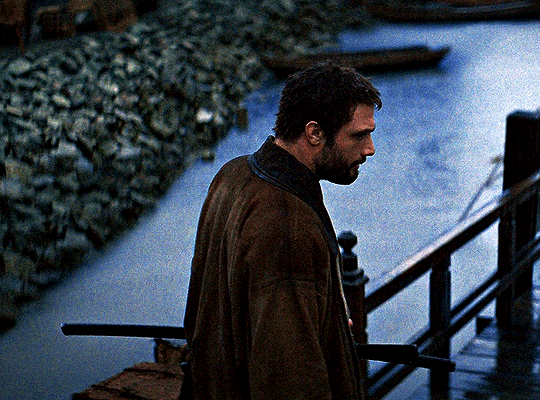
Final part. There is an enormous cancer attached to the samurai mythos and James Clavell's orientalism that I need to address. Well, I want to, anyway. In acknowledging how great the 2024 adaptation of Shōgun is, it's important to engage with the fact that it's fiction, and that much of its marketed authenticity is fake. That doesn't take away from it being an excellent work of fiction, but it is a very important distinction to me.
If you want to engage with the cool 'honourable men with swords' trope without thinking any deeper, navigate away now. Beyond here, there are monsters - literal and figurative. If you're interested in how different forms of media are used to manufacture consent and shape national identity, please bear with me.
I think the makers of 2024's Shōgun have done a fantastic job. But there is one underlying problem they never fully wrestled with. It's one that Hiroyuki Sanada, the leading man and face of the production team, is enthusiastically supportive of. And with the recent announcement of Season 2, it's likely to return. You may disagree, but to me, ignoring this dishonours the millions of people who were killed or brutalised by either the samurai class, or people in the 20th century inspired by a constructed idea of them.
Why are we drawn to the samurai?
A pretty badly sourced, but wildly popular history podcast contends that 'The Japanese are just like everybody else, only more so.' I saw a post on here that tried to make the assertion that the show's John Blackthorne would have been exposed to as much violence as he saw in Japan, and wouldn't have found it abnormal.
This is incorrect. Obviously 16th and 17th century Europe were violent places, but they contained violence familiar to Europeans through their cultural lens. Why am I confidently asserting this? We have hundreds of letters, journals and reports from Spaniards, Portuguese, Dutch and English expressing absolute horror about what they encountered. Testing swords on peasants was becoming so common that it would eventually become the law of the land. Crucifixion was enacted as a punishment for Christians - first by the Taiko, then by the Tokugawa shogunate - for irony's sake.
Before the end of the feudal period, battles would end with the taking of heads for washing and display. Depending on who was viewing them, this was either to honour them, or to gloat: 'I'm alive, you're dead.' These things were ritualised to the point of being codified when real-life Toranaga took control. Seppuku started as a cultural meme and ended up being the enforced punishment for any minor mistake for the 260 years the ruling samurai class acted as the nation's bureaucracy. It got more and more ritualised and flowery the more it got divorced from its origin: men being ordered by other men to kill themselves during a period of chaotic warfare. I've read accounts of samurai 'warriors' during the Edo period committing seppuku for being late for work. Not life-and-death warrior work - after Sekigahara, they were just book-keepers. They had desk jobs.
Since Europe's contact with Japan, the samurai myth has fascinated and appalled in equal measure. As time has gone on, the fascination has gone up and the horror has been dialled down. This is not an accident. This isn't just a change in the rest of the world's perception of the samurai. This is the result of approximately 120 years of Japanese government policies. Successive governments - nationalist, military authoritarian, and post-war democratic - began to lionize the samurai as the perfect warrior ideal, and sanitize the history of their origin and their heydey (the period Shōgun covers). It erases the fact that almost all of the fighting of the glorious samurai Sengoku Jidai was done by peasant ashigaru (levies), who had no choice.
It is important to never forget why this was done initially: to form an imagined-historical ideal of a fighting culture. An imagined fighting culture that Japanese invasion forces could emulate to take colonies and subdue foreign populations in WWI, and, much more brutally, in WWII. James Clavell came into contact with it as a Japanese Prisoner of War.
He just didn't have access to the long view, or he didn't care.
The Original Novel - How One Ayn Rand Fan Introduced Japan to America
There's a reason why 1975's Shogun novel contains so many historical anachronisms. James Clavell bought into a bunch of state-sanctioned lies, unachored in history, about the warring states period, the concept of bushido (manufactured after the samurai had stopped fighting), and the samurai class's role in Japanese history.
For the novel, I could go into great depth, but there are three things that stand out.
Never let the truth get in the way of a good story. He's a novelist, and he did what he liked. But Clavell's novel was groundbreaking in the 70's because it was sold as a lightly-fictionalised history of Japan. The unfortunate fact is the official version that was being taught at the time (and now) is horseshit, and used for far-right wing authoritarian/nationalist political projects. The Three Unifiers and the 'honour of the samurai' magnates at the time is a neat package to tell kids and adults, but it was manufactured by an early-20th century Japanese Imperial Government trying to harness nationalism for building up a war-ready population. Any slightly critical reading of the primary sources shows the samurai to be just like any ruling class - brutal, venal, self-interested, and horrifically cruel. Even to their contemporary warrior elites in Korea and China.
Fake history as propraganda. Clavell swallowed and regurgitated the 'death before dishonour', 'loyalty to the cause above all else', 'it's all for the Realm' messages that were deployed to justify Imperial Japanese Army Class-A war crimes during the war in the Pacific and the Creation of the Greater East Asian Co-Properity Sphere. This retroactive samurai ethos was used in the late Meiji restoration and early 20th century nationalist-military governments to radicalise young Japanese men into being willing to die for nothing, and kill without restraint. The best book on this is An Introduction to Japanese Society by Sugimoto Yoshio, but there is a vast corpus of scholarship to back it up.
Clavell's orientalism strays into outright racism. Despite the novel Shōgun undercutting John Blackthorne as a white savior in its final pages - showing him as just a pawn in the game - Clavell's politics come into play in every Asia Saga novel. A white man dominates an Asian culture through the power of capitalism. This is orthagonal to points 1 and 2, but Clavell was a devotee of Ayn Rand. There's a reason his protagonists all appear cut from the same cloth. They thrust their way into an unfamiliar society, they use their knowledge of trade and mercantilism to heroically save the day, they are remarked upon by the Asian characters as braver and stronger, and they are irresistible to the - mostly simpering, extremely submissive - caricatures of Asian women in his novels. Call it a product of its times or a product of Clavell's beliefs, I still find it repulsive. Clavell invents (nearly from whole cloth, actually) the idea that samurai find money repulsive and distasteful, and his Blackthorne shows them the power of commerce and markets. Plus there are numerous other stereotypes (Blackthorne's massive dick! Japanese men have tiny penises! Everyone gets naked and bathes together because they're so sexually free! White guys are automatically cool over there!) that have fuelled the fantasies of generations of non-Japanese men, usually white: Clavell's primary audience of 'dad history' buffs.
2024's Shōgun, as a television adaptation, did a far better job in almost every respect
But the show did much better, right? Yes. Unquestionably. It was an incredible achievement in bringing forward a tired, stereotypical story to add new themes of cultural encounter, questioning one's place in the broader world, and killing your ego. In many ways, the show was the antithesis to Clavell's thesis.
It drastically reigned in the anachronistic, ahistorical referencees to 'bushido' and 'samurai honor', and showed the ruling class of Japan in 1600 much more accurately. John Blackthorne (William Adams) was shown to be an extraordinary person, but he wasn't central to the outcome of the Eastern Army-Western Army civil war. There aren't scenes of him being the best lover every woman he encounters in Japan has ever had (if you haven't read the book, this is not an exaggeration). He doesn't teach Japanese warriors how to use matchlock rifles, which they had been doing for two hundred years. He doesn't change the outcome of enormous events with his thrusting, self-confident individualism. In 2024's Shōgun, Blackthorne is much like his historical counterpart. He was there for fascinating events, but not central. He wasn't teaching Japanese people basic concepts like how to make money or how to make war.
On fake history - the manufactured samurai mythos - it improved on the novel, but didn't overcome the central problems. In many ways, I can't blame the showrunners. Many of the central lies (and they are deliberate lies) constructed around the concept of samurai are hallmarks of the genre. But it's still important to me to notice when it's happening - even while enjoying some of the tropes - without passively accepting it.
'Authenticity' to a precisely manufactured story, not to history
There's a core problem surrounding the promotion and manufactured discussion surrounding 2024's Shōgun. I think it's a disconnect between the creative and marketing teams, but it came up again and again in advertising and promotion for the show: 'It's authentic. It's as real as possible.'
I've only seen this brought up in one article, Shōgun Has a Japanese-Superiority Complex, by Ryu Spaeth:
'The show also valorizes a supreme military power that is tempered by the pursuit of beauty and the highest of cultures, as if that might be a formula for peace. Shōgun displays these two extremes of the Japanese self, the savagery and the refinement, but seems wholly unaware that there may be a connection between them, that the exquisite sensibility Japan is famous for may flow from, and be a mask for, its many uses of atrocious domination.'
Here we come to authenticity.
'The publicity surrounding the series has focused on its fidelity to authenticity: multiple rounds of translation to give the dialogue a “classical” feel; fastidious attention to how katana swords should be slung, how women of the nobility should fold their knees when they sit, how kimonos should be colored and styled; and, crucially, a decentralization of the narrative so that it’s not dominated by the character John Blackthorne.'
It's undeniable that the 2024 production spent enormous amounts of energy on authenticity. But authenticity to what? To traditional depictions of samurai in Japanese media, not to history itself. The experts hired for gestures, movement, costumes, buildings, and every other aspect of the show were experts with decades in experience making Japanese historical dramas 'look right', not experts in Japanese history. But this appeal to 'Japanese authenticity' was made in almost every piece of promotional material.
The show had only one historical advisor on staff, and he was Dutch. The numerous Japanese consultants, experts and specialists brought on board (talked about at length in the show's marketing and behind the scenes) were there to assist with making an accurate Japanese jidaigeki. It's the difference between hiring an experienced BBC period drama consultant, and a historian specialising in the Regency. One knows how to make things look 'right' to a British audience. The other knows what actually happened.
That's fine, but a critical viewing of the show needs to engage with this. It's a stylistically accurate Japanese period drama. It is not an accurate telling of Japanese history around the unification of Japan. If it was, the horses would be the size of ponies, there would be far more malnourished and brutalised peasants, the word samurai would have far less importance as it wasn't yet a rigidly enforced caste, seppuku wouldn't yet be ritualised and performed with as much frequency, and Toranaga - Tokugawa - would be a famously corpulently obese man, pounding the saddle of his horse in frustration at minor setbacks, as he was in history.
The noble picture of restraint, patience, refinement and honour presented by Hiroyuki Sanada as Toranaga/Tokugawa is historical sanitation at its most extreme. Despite being Sanada's personal hero, Tokugawa Ieyasu was a brutal warlord (even for the standards of the time), and he committed acts of horrific cruelty. He ordered many more after gaining ultimate power. Think a miniseries about the Founding Fathers of the United States that doesn't touch upon slavery - I'm sure there have been plenty.
The final myth that 2024's Shōgun leaves us with is that it took a man like Toranaga - Tokugawa Ieyasu - to bring peace to a land ripped assunder by chaos. This plays into 19th century notions of Great Man History, and is a neat story, but the consensus amongst historians is if it wasn't Tokugawa, it would have been some other cunt. In many cases, it very nearly was. His success was historical contingency, not 5D chess.
So how did this image get manufactured, to the point where the Japanese populace - by and large - believes it to be true? Very long story short: after a period of rapid modernisation, Japan embraced nationalism in the late 19th century. It was all the rage. Nationalism depends on a glorified past. The samurai (recently the pariahs of Japanese history) were repurposed as Japan's unique warrior heroes, and woven into state education. This was especially heated in the 1920s and 30s in the lead up to the invasion of Manchuria and Japan's war of aggression in the Pacific. Nationalism + militarism = the modern Japanese samurai myth, to prepare men to obey orders unquestioningly from a military dictatorship.
This persists in the postwar period. Every year since 1963, Japan's state broadcaster NHK commissions a historical drama - a Taiga Drama, where many of this show's actors got their starts - that manufactures and re-enforces the idea of samurai as noble, artful, honourable people. Read a book - read a Wikipedia article! - and you'll see that most of it stems from Tokugawa-shogunate era self-propaganda. It's much like the European re-interpretation of chivalry. In Europe's case, chivalry in actual history was a set of guidelines that allowed for the sanctioned mass-rape and murder of civilians, with a side of rules regarding the ransoming of nobles in scorched-earth military campaigns. In Japan's case, historical figures that regularly backstabbed each other, tortured rival warriors and their lessers, and inflicted horrific casualties on the peasants that they owned (we have a term for that) are cast as noble, honourable, dedicated servants of the Empire.
Why does this matter to me? Samurai movies and TV shows are just media, after all. The issue, for me, is that the actors, the producers - including Hiroyuki Sanada - passionately extoll 'accuracy' as if they genuinely believe they're telling history. They talk emotionally about bushido and its special place in Japanese society.
But the entire concept of bushido is a retroactive, post-conflict, samurai construction. Bushio is bullshit. Despite being spoken of as the central tenet of 2024's Shōgun by actors like Hiroyuki Sanada, Tadanobu Asano, and Tokuma Nishioka, it simply didn't exist at the time. It was made up after the advent of modern nationalism.
It was used to justify horrendous acts during the late Edo period, the Meiji restoration, and the years leading up to the conclusion of Japan's war of aggression in the Pacific. It's still used now by Japan's primarily right-wing government to deny war crimes and justify the horrors unleashed on Asia and the Pacific during World War II as some kind of noble warrior crusade. If you ever want your stomach turned, visit the museum attached to Yasukuni Shrine. It's a theme park dedicated to war crimes denial, linked intimately to Japan's imagined warrior past. Whether or not the production staff, cast, and marketing team of 2024's Shōgun knew they were engaging with a long line of ahistorical bullshit is unknown, but it is important.
It's also important to acknowledge that, having listened to many interviews with Rachel Kondo and Justin Marks, they were acutely aware that they weren't Japanese, to claim to be telling an authentically Japanese story would be wrong, and that all they could do was do their best to make an engaging work that plays on ideas of cultural encounter and letting go. I think the 'authenticity!' thing is mostly marketing, and judicious editing of what the creators and writers actually said in interviews.
So... you hate the show, then? What the hell is this all about?
No, I love the show. It's beautiful. But it's a beautiful artwork.
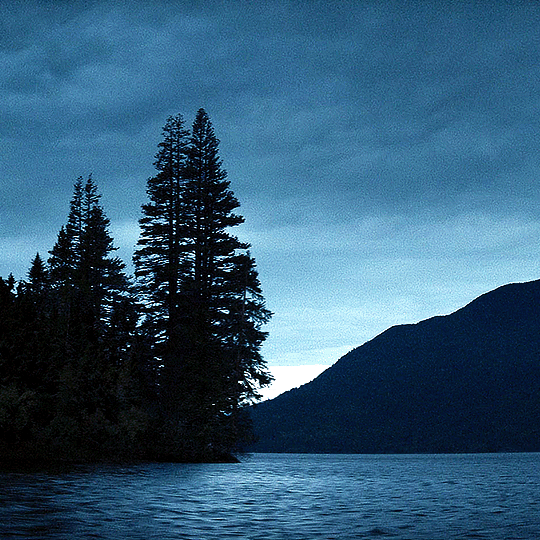
Just as the noh theatre in the show was a twisting of events within the show, so are all works of fiction that take inspiration from history. Some do it better than others. And on balance, in the show, Shōgun did it better than most. But so much of the marketing and the discussion of this adaptation has been on its accuracy. This has been by design - it was the strategy Disney adopted to market the show and give it a unique viewing proposition.
'This time, Shōgun is authentic!*
*an authentic Japanese period drama, but we won't mention that part.
And audiences have conflated that with what actually happened, as opposed to accuracy to a particular form of Japanese propaganda that has been honed over a century. This difference is crucial.
It doesn't detract from my enjoyment of it. Where I view James Clavell's novel as a horrid remnant of an orientalist, racist past, I believe the showrunners of 2024's Shōgun have updated that story to put Japanese characters front and centre, to decentralise the white protagonist to a more accurate place of observation and interest, and do their best to make a compelling subversion of the 'stranger in a strange land' tale.
But I don't want anyone who reads my words or has followed this series to think that the samurai were better than the armed thugs of any society. They weren't more noble, they weren't more honourable, they weren't more restrained. They just had 260 years in which they worked desk-jobs while wearing two swords to write stories about how glorious the good old days were, and how great people were.
Well... that's a bleak note to end on. Where to from here?
There are beautiful works of fiction that engage much closer with the actual truth of the samurai class that I'd recommend. One even stars Hiroyuki Sanada, and is (I think) his finest role.
I'd really encourage anyone who enjoyed Shōgun to check out The Twilight Samurai. That was the reality for the vast majority of post-Sekigahara samurai
For something closer to the period that Shogun is set, the best film is Seppuku (Hara-Kiri in English releases). It is a post-war Japanese film that engages both with the reality of samurai rule, and, through its central themes, how that created mythos was used to radicalise millions of Japanese into senseless death during the war. It is the best possible response to a romanticisation of a brutal, hateful period of history, dominated by cruel men who put power first, every single time.
I want to end this series, if I can, with hope. I hope that reading the novel or watching the 1980 show or the 2024 show has ignited in people an interest in Japanese culture, or society, or history. But don't let that be an end. Go further. There are so many things that aren't whitewashed warlords nobly killing - the social history of Japan is amazing, as is the women's history. A great book for getting an introduction to this is The Japanese: A History in 20 Lives.
And outside of that, there are so many beautiful Japanese movies and shows that don't deal with glorified violence and death. In fact, it makes up the vast majority of Japanese media! Who would have thought! Your Name was the first major work of art to bridge some of the cultural animosity between China and Japan stemming from WW2, and is a goofy time travel love story. Perfect Days is a beautiful movie about the simple joy of living, and it's about the most Tokyo story you can get.
Please go out, read more, watch more. If you can, try and find your way to Japan. It's one of the most beautiful places on earth. The people are kind, the food is delicious, and the culture is very welcoming to foreigners.
2024's Shōgun was great, but please don't let that be the end. Let it be the beginning, and I hope it serves as a gateway for you.
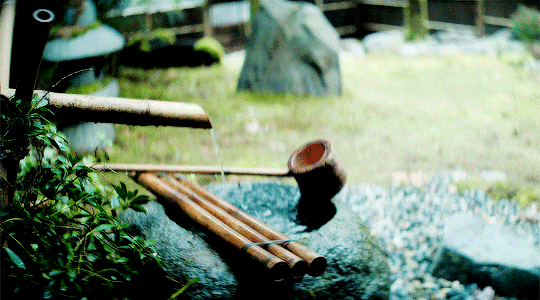
And I hope our little fandom on here remembers this show as a special time, where we came together to talk about something we loved. I'll miss you all.
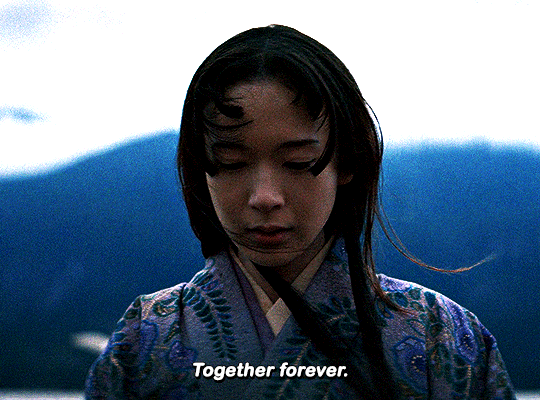
#shōgun#shogun#shogun fx#toda mariko#john blackthorne#anjin#adaptationsdaily#perioddramasource#hiroyuki sanada#yoshii toranaga#akechi mariko#history#history lesson#japan#world war ii#japanese culture#tokugawa ieyasu#hosokowa gracia#william adams#sengoku jidai#writer stuff#book adaptation#women in history#social history#period drama
138 notes
·
View notes
Text
533 notes
·
View notes
Note
hiii sergle do you have any thoughts on the 2nd try try guys thing? curious to hear your opinion!!
i'm so glad you asked bc i love giving my opinion..... first things first, this is REALLY FUCKING FUNNY, the way that Watcher fumbled the bag so badly when they made their announcement probably gave the tryguys a lot of data to work with. obviously everyone is comparing the two things, but in this instance, I actually think the streaming service thing makes more sense, and is done in a better way, with less guilt tripping and more like, Hype. so the most relevant thing, nothing about the youtube channel is going to change, no previously free content is going to be paywalled, new videos are going to keep airing. so somebody who missed the news or isn't inch rested isn't going to have a different experience at all. new shows are going to be on there, but also they're Already On There. like, a lot of episodes. stuff is going to be released earlier on there, uncensored videos, new people showing up (tryguys already has a lot of Talent), and live ticketed events that they normally charge for are gonna be included in the subscription. so like, this sounds justifiable as a thing that you'd Pay For. Watcher was going to put their whole back catalog behind a paywall, they only had a couple of shows plus One New Steven Food Show that was gonna go on their streaming thing, and they were going to stop posting to youtube except for the first episode from each new season of a thing. and the Watcher one was still priced a dollar higher. and they have a very small cast of talent. also, it was a Streaming Service, but it was still something you could only watch in a browser, not on a TV or anything. so it was just a website. the one that tryguys have is actually an app you can have on your tv. like on a roku or whatever. so I think that's another point in its favor. you can't launch a "streaming service" that you can't even watch on your tv.
overall, I think it tracks, they've been a business for a lot longer and they've started a bunch of new shows to go on there, the announcement video wasn't Whiny and Guilt Trippy, it seems like they put more thought into this. also I got a free trial to poke around, which, I do like that that's an option. timing could have been better, some people are being pussies about it in a major way, which is to be expected, and I am basically ambivalent to it, I don't plan on paying, but it seems like it's had a lot more thought put into it, and it could actually be sustainable as a platform running alongside their youtube channel. done correctly, it could be their Mythical Society. if it flops, they aren't alienating their youtube audience.
#they'll probably need to adapt a few things: mainly their pricing for other countries / currencies#bc just converting $5 to other currencies isn't straight-up-and-down they actually have to scale it down a lot of the time#i'm sure it can be done#and I think that they should add a social aspect to their service-- I think a comment section on videos#is an underrated part of one of the things ppl like about youtube#so I think some type of comment section or forum thingy would be good#sergle answers
76 notes
·
View notes
Text
thank you @mafaldinablabla for the tag!! the game is to share 9 of my favourite books from the last 12 months, or 9 books on my tbr list for this year.
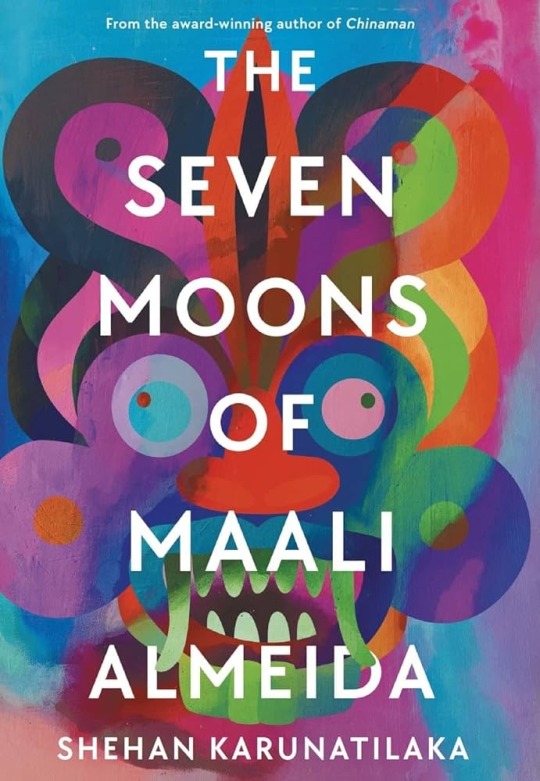
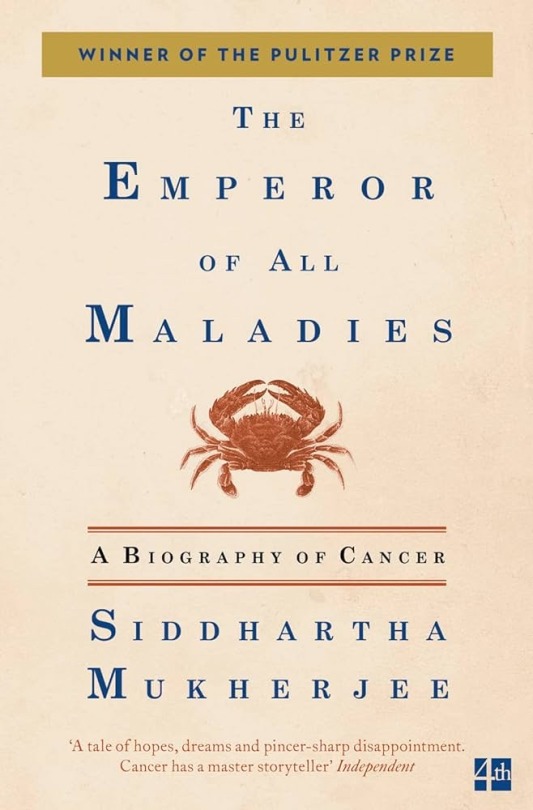
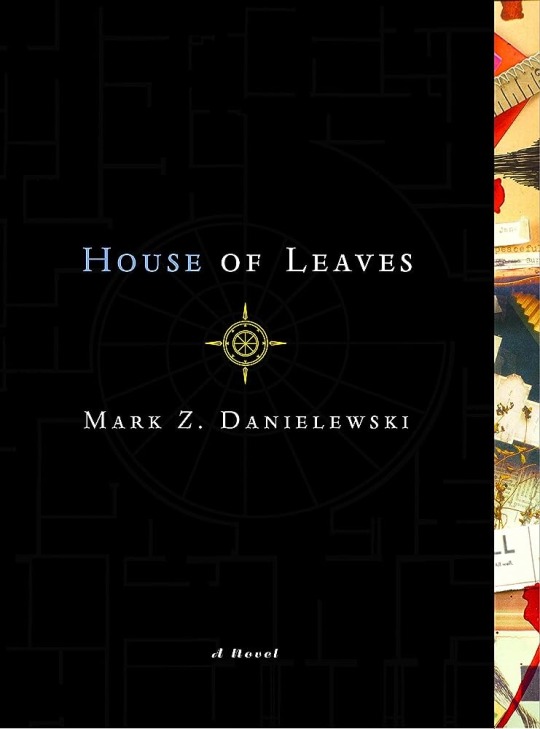
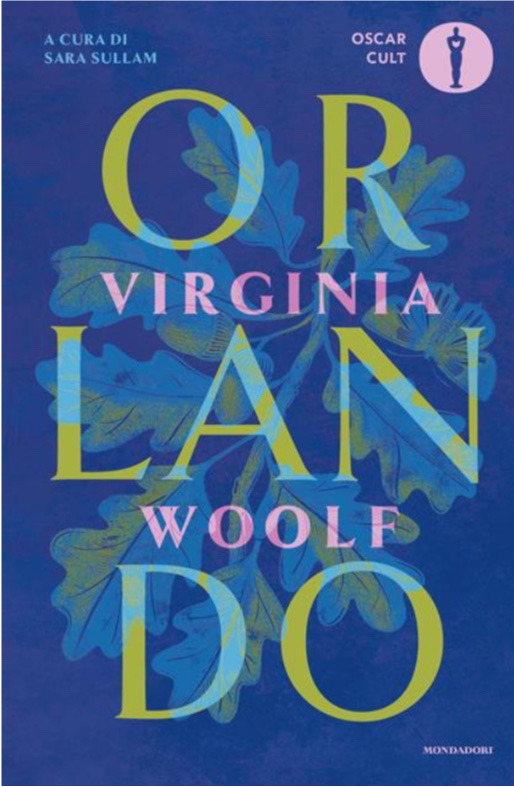
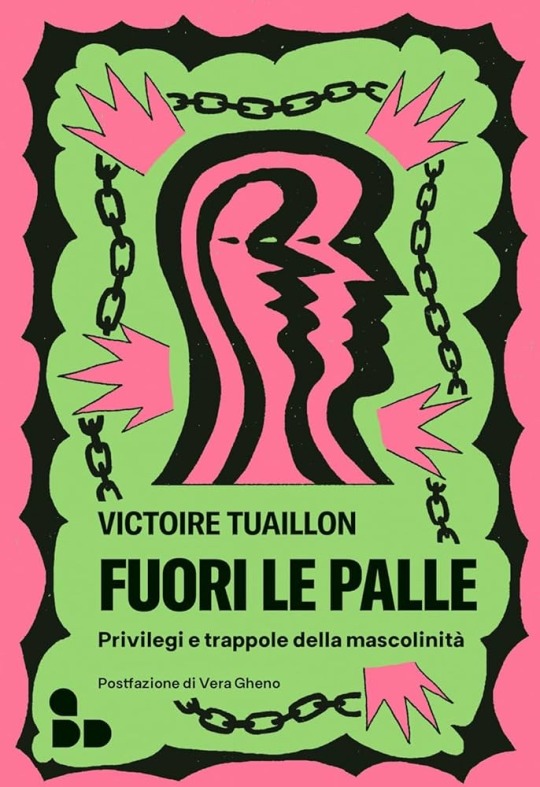
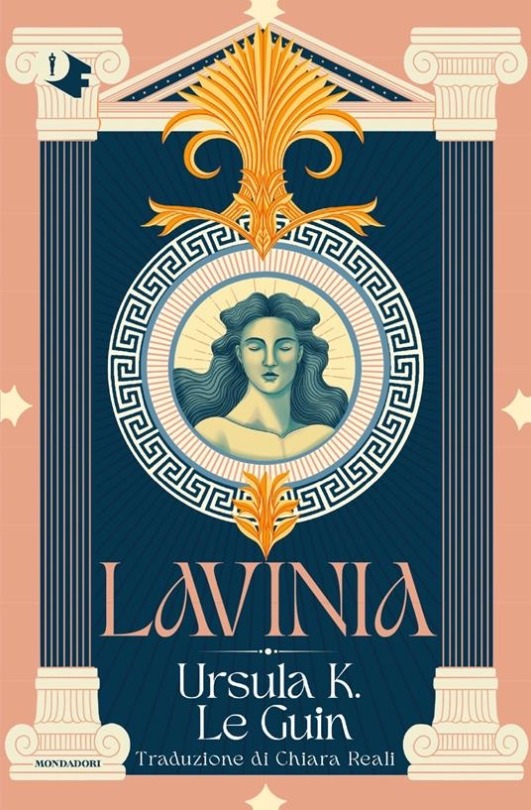
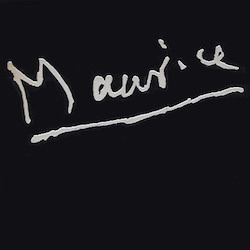
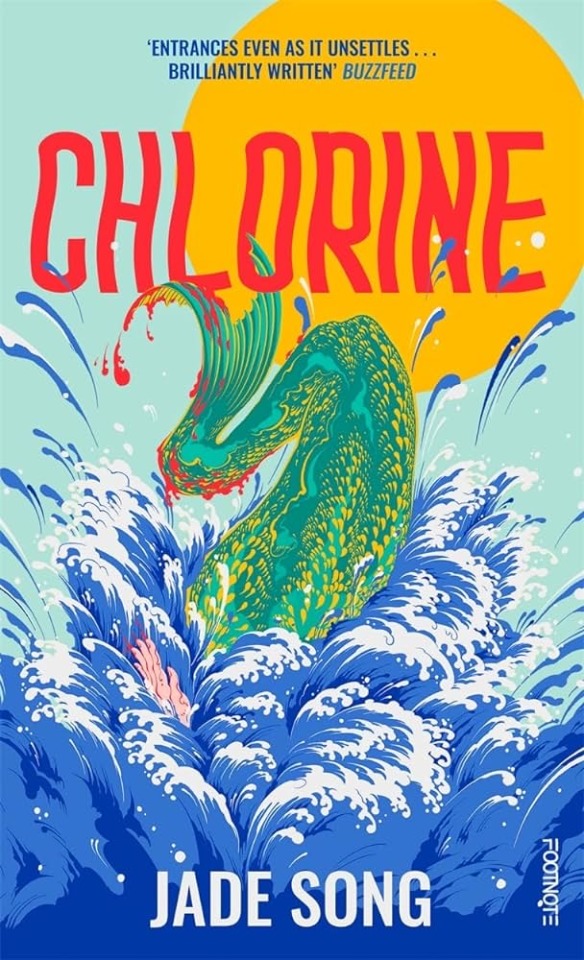
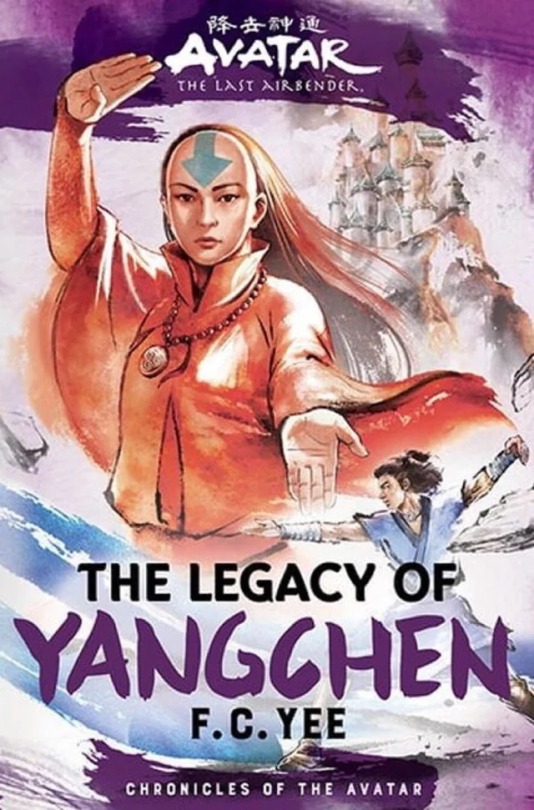
Here is what i’m looking forward to read this year! (my hunt for beautiful covers never ends. in this house books Shall be judged by their cover)
tagging uhh @erisenyo, @chitsangenthusiast, @ranilla-bean, @poikilotherm, @kyoshialone and whoever else wants to do it u.u
#also i really wanted to read the iliad but idk if there is a good prose translation/adaptation of it???#if any of italian moots has come across one…#blease tell me... blease hmu#ive also been meaning to get more into uhh#social theory books?#if that’s the word?#but idk where to begin#esp bc i read on a short commute and i usually don’t have the brain space to engage with academy level texts#again if someone know a version of this for tired dummies lmk#ALSO cheating a bit bc i already started the seven moons of maali almeida and i’m loving it sooooo much#plus jorjus cover#so rlly the perfect book#realizing i should prolly start a book tag hmm#anyway#send post#oh I'm also looking forward to finish the murderbot diaries it's slow going but I'm halfway through and they're so good#books
108 notes
·
View notes
Text
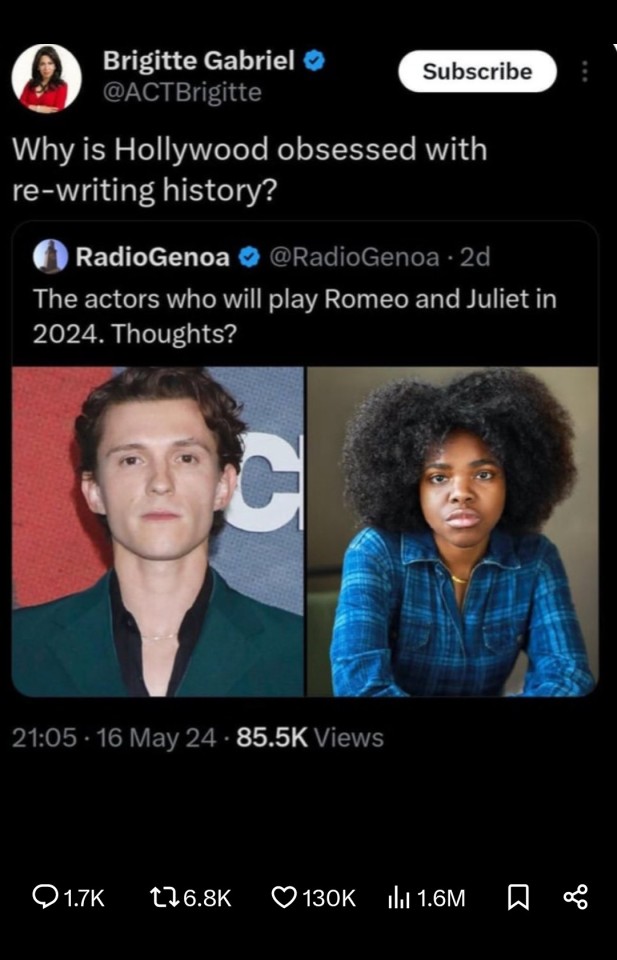
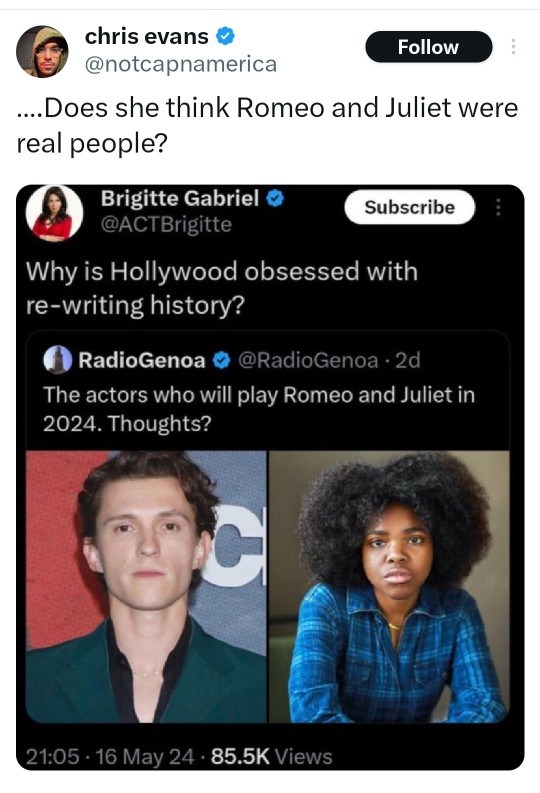


#romeo and juliet#jamie lloyd company#tom holland#francesca amewudah-rivers#racial abuse#online harassment#theater industry#inclusive casting#support for actors#diversity in theater#combating racism#shakespeare adaptation#bullying and harassment#creative freedom#protecting artists#theater community#anti-racism#inclusive productions#social media abuse#actor protection#theater productions
63 notes
·
View notes
Text
Smackdown Pen vs Reel Chapter Nine: Red, White & Royal Blue Continues to Be the Perfect Political Romance We Didn't Know We Needed
Content Warning: Red, White & Royal Blue contains discussions of homophobia, family drama played out in public and in private, brief discussions of racism and xenophobia, and trauma related to abandonment and familial death. It’s also a romcom but the angst was angsting. Reader/viewer discretion is advised. Spoilers for Red, White & Royal Blue ahead! At long last! Due to 2023’s entertainment…
#adaptation pass or fail#adult romance#book adaptation#book reviews#book to screen#book-review#books#casey mcquiston#comedy#enemies to lovers#family drama#lgbt+#lgbt+ movie#lgbt+ novel#new adult#new adult romance#red white & royal blue#rivals to lovers#romance#romantic comedy#romantic drama#romcom#social commentary
27 notes
·
View notes
Text
one of my favorite but also again alas relatively rare flavor of fic is where actually, it turns out Q is the well-adjusted one (well, as well-adjusted as anyone working at MI6 can be), and Bond is the manic pixie disaster nightmare
#00q#it's more rare because Q tends to be the one written as the manic pixie or manic pixie-esque one#but. I like it when he has like normal people problems. and you realize. oh Bond is the one who has something profoundly wrong with him#a sort of adjacent flavor to this is Q like assuming Bond - despite being an international superspy etc - is still. like.#you know... a functioning adult?#and acts accordingly?#but then he slowly realizes... oh actually this man is very Not Normal and incredibly out of touch with like. normal people things and#is coasting on his spy skills of adaptability and like social mimicry. but actually he has no idea what a normal people relationship is lik#and like. what a normal people meeting the friends and family situation is like. cuz he's never done that really#Bond's whole job and persona hinges on him projecting that he is very With It but I like it when you realize oh actually no#there is something profoundly wrong with this dude <3 but like not in a 'way youd expect' way wrong with him in a completely normal way#Q is like let's go to a carnival! and Bond is like let's what (has no concept of normal ppl dates like let's kiss on a ferris wheel)
33 notes
·
View notes
Text
So... let me tell you a secret dear followers and friends... I've read the new Absolute Batman comic and it's pretty cool. Bruce is middle class, he loves his mom, he has goofy ass but still cool weapons, is ok with a little violence (but doesn't kill obviously), was a dork obsessed with bats since before his father died, is childhood friends with the crooks, lives in a world where a person can just walk around holding a pet crocodile... these particular things made the character endearing somehow. I don't need to say I am a Batman hater, a Bruce Wayne despiser, but this first issue was actually good, entertaining and a little tiny bit heartfelt (something I never feel from Batman comics - can't really connect or sympathize with Bruce, and I desperately need those warm moments to appreciate a comic character). So that's it, after a decade of Batman hate I found myself actually able to enjoy 1) Batman the Caped Crusader; 2) Absolute Batman... I don't know what to make of that, I'm just honestly opening my heart here, what the future holds for me? I'm not sure anymore
#absolute batman#batman: caped crusader#batman#not a fan still#but a mild appreciator of some adaptations? that's probably more accurate#dc comics#text#i really cannot realistic sympathize with billionaire characters it's just part of who i am at this point#also... his father is a teacher and his mom a social worker#i'm a teacher and my family has always been involved with social work so... i feel that absolute bruce#thoughts
20 notes
·
View notes